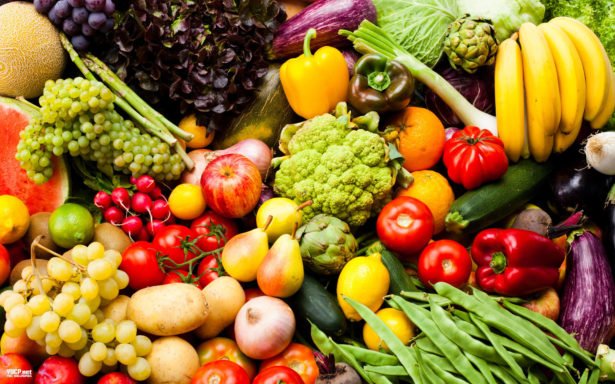
Flavonoids, commonly found in nature, are not particularly well-known for their properties or, in particular, for the benefits that they represent for our health. Citrus fruits, apples, apricots and other fruits and various foods, owe flavonoids and other substances their color, which ranges from warm shades of yellow to equally charming red and orange hues. But how do they interact with our body when we ingest them?
Flavonoids: What Are They?
Flavonoids, also known as bioflavonoids, are natural chemical compounds. They can be found in plants and they have important properties for our health, but in order to elaborate them it’s necessary to make a distinction because it depends on flavonoid to flavonoid.
Almost every one of them hast the ability to counteract the damage caused by free radicals. This, in turns, leads to different degrees of benefits inherent in chronic degenerative diseases. The category that we are now exploring is vast and it includes over 5000 compounds.
Flavonoids: Benefits
Generally, flavonoids are considered to be powerful antioxidants and are used to improve the functioning of the liver as well as the immune system and capillaries. They are also recommended when it comes to preventing cardiovascular and inflammatory diseases. Some argue that they are also effective against certain types of tumors.
Let’s have a look at how the most well-known and most useful flavonoids work. We can start with milk thistle, which stimulates the liver’s function and protects it from toxins, or with green tea, another source rich of flavonoids, loved as an antioxidant and used for “anti-aging therapies”. Horse chestnut, less common, has a protective and strengthening function on the microcirculation, especially if it’s ingested in combination with vitamin C. Let’s not forget about red wine that, in moderate doses, can help deal with cardiovascular issues.
Also worth mentioning are the benefits that these substances represent for vegetables. Flavonoids, in fact, protect plants from the possible damage caused by solar radiation or by different kinds of pathogens. Moreover, they affect metabolism by improving it.
Flavonoids: Foods
Flavonoids are found in vegetables, such as cabbage and broccoli, spinach, tomatoes, fennel and onions; they’re found in seeds, barks, rhizomes and leaves of a series of plants; and they can be also found in drinks like tea and fruit juices, in addition to red wine as we’ve previously mentioned. Let’s also not forget about dark chocolate, citrus fruits, buckwheat and propolis.
Flavonoids: Supplements
Sometimes, when taste or lack of opportunity are in play, we have to get some “help” from supplements in order to consume the recommended daily intake of flavonoids. With 18 Euro, for instance, we can get a bottle of 60 capsules, containing red vine leaves and vitamin C, also suitable for vegans. This type of supplement is recommended for those who suffer from swollen ankles and tired legs.
Translated by Carla Cometto